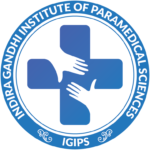- Clinical Biochemistry covers analysing blood and bodily fluids. It is to assess organ function, identify metabolic disorders, and monitor diseases.
- Microbiology is the study of microorganisms. These include bacteria, viruses, and parasites. It is to diagnose infections and identify pathogens.
- Haematology focuses on analysing blood cells. It is to diagnose blood disorders like anaemia or leukaemia.
- Histopathology is the microscopic examination of tissue samples. It is crucial for diagnosing diseases like cancer.
- You’ll learn about the body’s immune system. You’ll also learn about its response to infections.
- This covers proper procedures for sample collection, handling, and analysis. It also covers the reporting of test results.
Additional Skills:
- Laboratory Instrumentation:Operate and maintain sophisticated laboratory equipment used for various tests.
- Quality Control:Ensure the accuracy and reliability of laboratory tests through established protocols.
- Data Analysis and Interpretation:Understand test results. They’ve provided valuable information for diagnosis and treatment.
- Communication and Teamwork:Tell test results to healthcare professionals well. Also, work with other lab staff.
Practical Training:A significant portion of the DLT curriculum emphasises practical training in laboratories. You’ll get hands-on experience. You’ll perform many diagnostic tests, from blood analysis to cultures. This practical training lets you hone your skills. It will give you confidence in using theory in the real world.
Variations in Curriculum:The DLT curriculum might vary by college. Some institutions may offer additional courses or specialisations within the program. Make sure to check the exact curriculum details. They are offered by the colleges you’re interested in applying to.
Diploma in Lab Technician
| Duration of the Course | 2 years |
| Number of Seats available | 40 |
| Eligibility Criteria | The candidate must have completed age of 17 years of the age as on 31st December of the admission year. There is no maximum age limit for the Qualification. 1. 10+2 with Physics, Chemistry, Biology/Mathematics. 2. A candidate who has appeared in the examination of intermediate (science) is also eligible for entrance examination but must produce the mark sheet or certificate at the time of admission to the course. Students shall be admitted once a year. |
| Syllabus Break-up | First year(12 months) Paper 1 1.General anatomy and physiology (Cytology, Histology, Osteology and only basic of all organ system of body). 2.Only basics of relevant Pathology, Pharmacology & Microbiology. Paper 2 1. Clinical Hamatology & Clinical Microbiology -I. 2. Clinical Biochemistry -I. 3. Hand Hygiene & prevention of cross infection. 4. Basic life Support (BLS) & Cardio-Pulmonary Resuscitation (CPR). PRACTICAL • During first year, they should be there only as “Observers” in proclical classes. • Making of slide and staining. • Assessing hemoglobin with different methods. • Loading of Neubauer’s chamber. • TLC,DLC,ESR & PCV, Reticulocyte count, RBC Count, Platelet Count, Buffy coat preparation, Coomb’s Test – Direct & Indirect, LE Cell, Osmotic fragility Test, PT/PC, Blood grouping methods, Uses of anti-coagulants, Bone Marrow Aspirations, Cell Count in Acute Leukemia, Cell Count in Chronic Leukemia. •Examination of Malarial Parasite. •Examination of Microfillaria. •Fetal Hemoglobin •Urine collection and preservation •24 hrs. Urine protein estimation •Urine examination – Physical / Chemical •Urine examination – Microscopy •CSF examination, Semen examination, Other body fluid examination, Rh antibody titre, Automation in haematology, Normal & Molar, Percentage, Buffers, Glucose, Albumin & Physical Examination •Chemical Examination (Chloride, Sulphate, Urea, Ammonia,Phoshate) •Chemical Examination (Protein, Glucose, Ketone Bodies, Bile Salt,Bile Pigment, •Blood, Urobilinogen, Chyle, Phenyl Ketonuria, Alkeptonuria) •Normal Value,Hyper Value & Hypo Value •Programming of Different Analytes •Standardization,Microscopy •Preparation of load for autoclaving & hot air sterilization, Autoclaving, Use of hot air oven &Disinfection •Preparation of Buffer & reagentsPreparation of Culture media (Selective medias & Special medias) •Smear preparation, Use of centrifuges, Preparation of stains, Gram’s staining, Zeihl Neelsen staining •Leishman / romanowsky staining •Albert’s & other special staining •Inoculation of culture media-I •Inoculation of culture media-II •Drug Sensitivity Testing-I •Drug Sensitivity Testing-II ADDITIONAL- 1.Basic Computer skills 2.Basic English 3. soft skill like – interpersonal relationship skill & Moral education Second year(12 months) Paper 1 1. Only relevant surgical & medical conditions (relevant to Lab technician). 2. Clinical Microbiology II & Biochemistry II. Paper 2 1. Histopathology & Cytopathology. 2. Blood banking & Biomedical waste management. PRACTICAL •Grossing in General pathology, GIT, Hepatobiliary system, Female genital system, •Breast tissue, Urinary system, Bones & Thyroid and endocrine glands. •Staining of slides in Histopathology – H & E, PAS, AFB & GIEMSA •Processing in Histopathology I, II, III, IV •Blocking in Histopathology I & II •Section Cutting in Histopathology I, II, III, & IV •Making Stain in Cytopathology I, II, III, IV & V •Staining of slides in Cytopathology- H& E , PAP, AFB & GIEMSA •Blood Grouping And Cross Matching I, II & III •Rh Antibody I & II •Coomb’s Test I & II •Component Preparation I & II •Normal Value, Hyper Value & Hypo Value •T3 , T4 & TSH •PRL, Centrifuge, PH Meter, Electrophoresis, PCR •Thin Layer Chromatography (TLC) •Urine Sample, Sputum, Wound swab, CSF & Stool •Animal inoculation, Bleeding of mice & rabbit •Collection of sheep blood aseptically •Care and handling of lab animals •Introduction and classification of parasites •Medically important parasites -I & II •Procedure/Method of stool examination •Preparation & staining of blood films for haemoparasite •Preparation of blood film for Parasites •Staining (Leishman, Geimsa) & Blood smear examination •Demonstration of P.vivax, P. falciparum & filarial worms •Preparation of stool smears (i) Saline (ii) Concentrated •VDRL test & WIDAL test •Latex agglutination •ELISA Test •Staining methods for fungus •Preparation of smears for fungus examination-I & II •Preparation of media for culture of fungi |
| Medium of Instruction | English |
